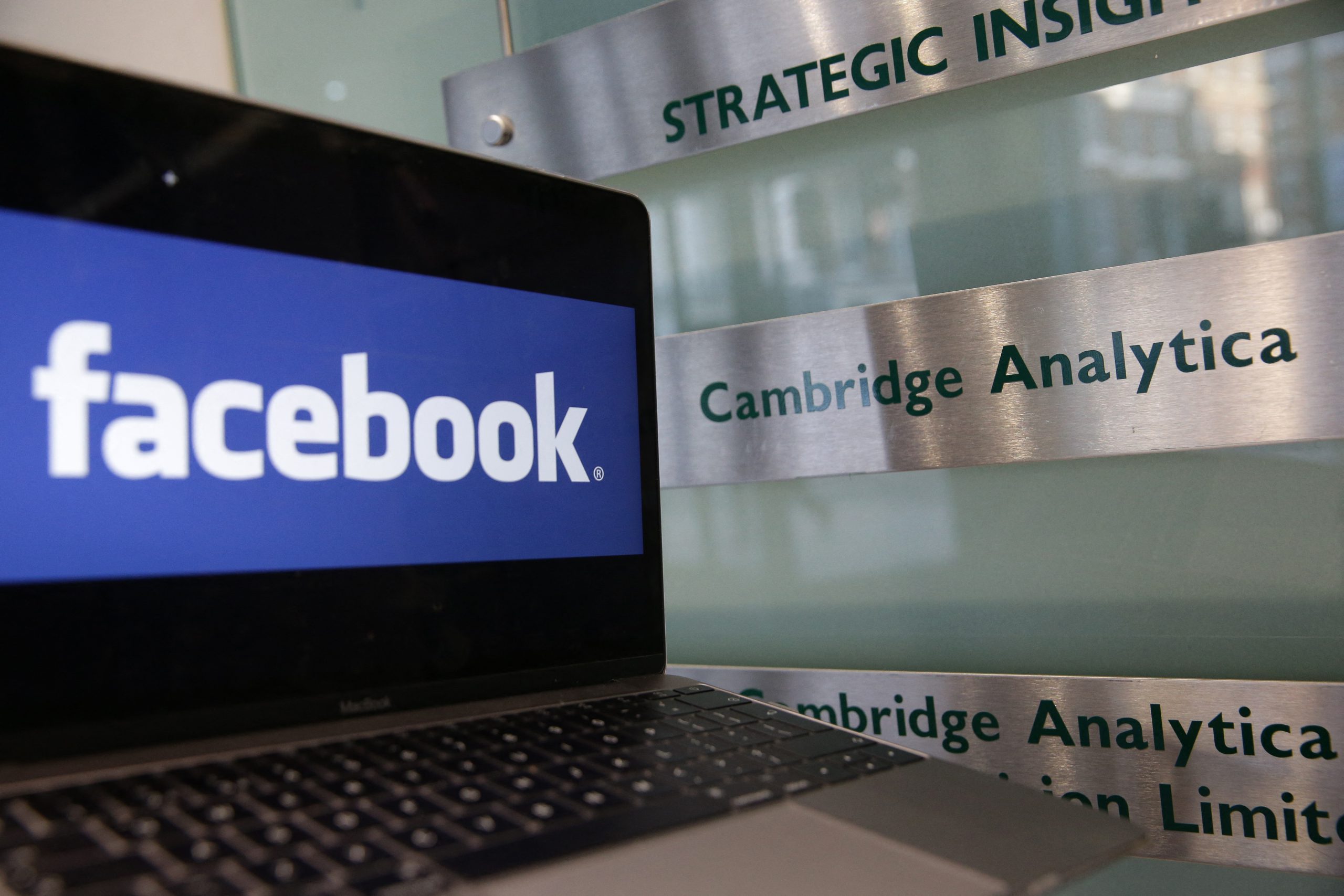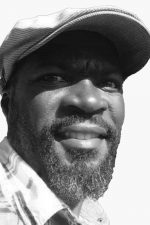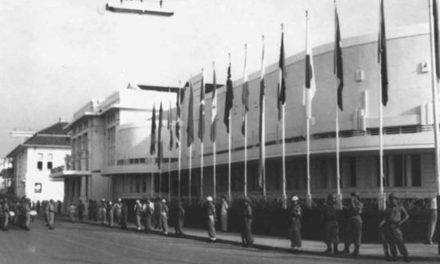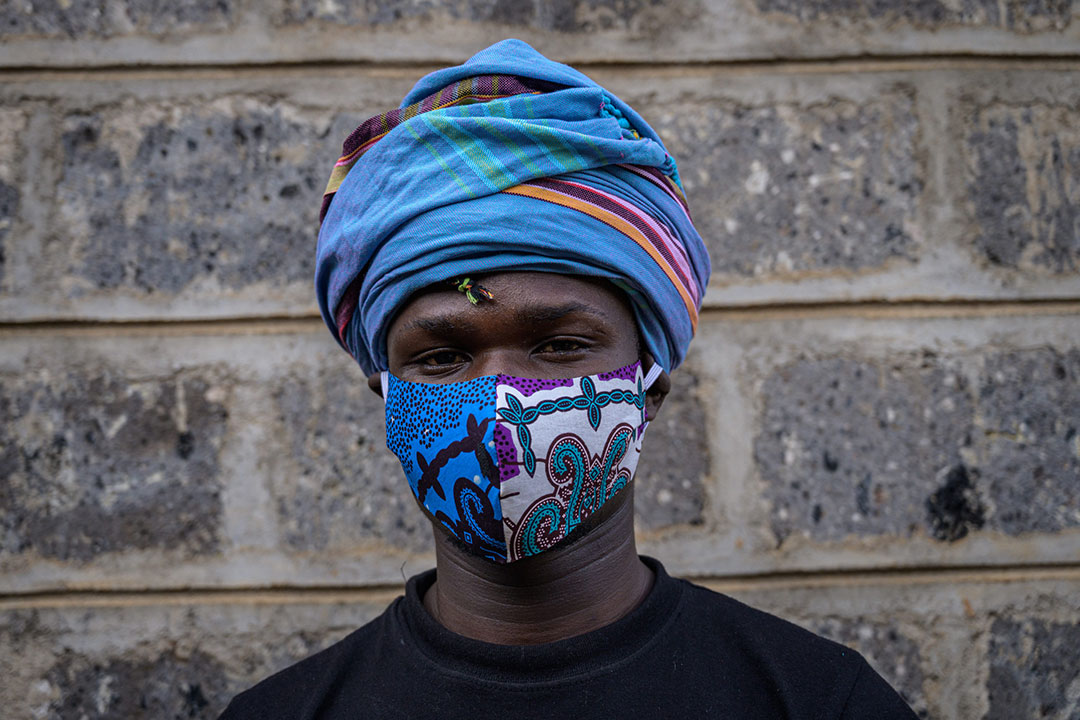The digital divide between Africa and the US is shrinking fast
There is an excitement that comes with one’s Facebook post getting many likes within hours, or with a WhatsApp status that quickly elicits many views and chats. It prompts a nice feeling and temporary addiction to keeping tabs on how many more friends are reacting to the post or status. Social media power is anchored on emotions, and these capitalism-driven technologies ensure emotional arousal.

A laptop showing the Facebook logo is held alongside a Cambridge Analytica sign at the entrance to the building housing the offices of Cambridge Analytica, in central London on March 21, 2018. Photo: Daniel Leal-Olivas/AFP
The people who invented social media technologies did not, however, envisage the commercialisation of their inventions, or that they would be emotionalised. The inventors’ humanitarian ideas were later hijacked by influential people in society, who saw social media’s potential to wield power and make money. Today, both the inventors and influential people decide how we use social media. Mark Zuckerberg, Andrew McCollum and their two roommates’ intention to use Facebook to check out cute girls at Harvard University decades ago has influenced, among others, the “slay” kingdom and queendom culture. Slays refer to the self-appointed social media trendsetters; usually, in terms of looks more than content.

Facebook CEO Mark Zuckerberg. Photo: Drew Angerer/Getty Images via AFP
Similarly, Brian Acton and Jan Koum’s idea of WhatsApp was to enable people to post their status on phones to let others know they were available for chats. As a result its ease of use has enabled the technology to become the most used social media all over the world. The commercialisation aspect was brought in by the influential people, who bought shares in the technologies as investors to enable growth. Societal elites, including politicians and business people loved that the social media technologies emotionalised people more than they engaged them in sober discourse on issues affecting them.
Although Twitter was the most used social media during the 2020 US electoral campaign, WhatsApp led in spreading the Twitter messages, both in the United States and on the African continent. As the most used social media in Africa, Twitter provides a platform for electoral dialogues across the continent, challenging political governance highhandedness in the region.
In the US, Donald Trump’s use of social media popularised American politics in Africa and globally, but also increased the vulgarisation of the engagements. Arguably, American and African elites are aware and afraid of how people use the power of social media to hold them accountable. This has made them use the medium to vulgarise political debates to dodge people’s sobriety on public interest issues. Even though scholars argue that people use social media for collective emotionalisation, which helps them overcome fear and confront political injustice across the globe, this does not guarantee healthy debates on the platforms. After all, the unseating of long-serving presidents during the 2010 Arab Spring did not bring with it any better political engagements. Neither did it safeguard purported better democratic values in the affected nations. The technologies preoccupy people with more emotions than logic. This betrays Tim Berners-Lee’s original intention – to create a World Wide Web (WWW) that would be committed to values of public welfare, serving as a universal medium for sharing information. He hitherto envisaged the technology as a medium free of commercial interests and power wielding.
Governments across the globe are strengthening control over content on social media. The new practices of corporate surveillance and exploitation are at all-time highs. For instance, in Africa, governments attempt to regulate social media technologies, allegedly on grounds of public interest, especially on the pretext of national security. During the last elections in Nigeria and Ghana, incumbent presidents (mis)used social media during political campaigns for their re-election bids far more than any other entity in their countries. The incumbents infiltrated opposition parties and tracked their activities. In Kenya, the 2017 elections witnessed the first incumbent’s high-tech electoral malpractice, which was later nullified by the country’s Supreme Court. During the elections, the country’s incumbent used social media to rig the elections, ostensibly using ghost accounts to stamp virtual majoritarianism. However, in a dramatic turn of events, the very same social media was used by the opposition to collect evidence of the incumbent’s electoral malpractice, which upon presentation to the court, led to the nullification of the election.
Logos of US social networks Facebook, Instagram and mobile messaging service WhatsApp. Photo: Lionel Bonaventure/ AFP
A loose comparison can be drawn between Africa and US electoral politics, in which Trump alleged through social media that his opponent, Joe Biden, had rigged the 2020 elections. The comparison points to the fact that the digital divide between the US and African nations is shrinking fast. Knowledge drawn from the comparison would be handy to analyse the Biden administration’s policy on Africa. With many social media technological similarities, converging interests may be identified and mutual benefits harnessed to better both continents.
Besides the similarity in terms of political administrations, another outstanding similarity is in the corporate surveillance. This is one of the direct results of the influential people’s subversion of the technologies away from the original intentions of the inventors. The influential people advance globalised commercial interests. American author Mark Manson’s first chapter in his motivational book, The Subtle Art of Not Giving a F*ck, refers to social media as “the feedback loop from hell”. He argues that social media posts from friends entrap people into a daily struggle to meet certain desires. It makes them strive and break down with self-hate in pursuit of the social-media set standards of success. They then regard themselves as losers after comparing themselves against others’ material acquisitions. Their biggest fear is that the social media world will perceive them as losers if they don’t have material possessions to flaunt. They will engage in impulse expenditure, usually on credit, to acquire and flaunt the latest acquisitions, for friends to affirm that they are not losers. The commercialists love it so. The desire to flaunt material acquisition has been made even more popular through the universalisation of human wants such as holidays, expensive cars, and exclusive parties, among others.
Today, American and African citizens have similar desires, popularised through social media. They plan grand weddings because their friends had colourful ones the previous weekend. They hire limousines for short trips to take photos because a friend got a Ferrari on their birthday. Kenyan netizens will remember the Dorcas Sarkozy saga, which culminated in an emotional con and financial loss to the tune of US$5000. Had it not been for the materialistic lure of social media, she would not have fallen victim while trying to impress a purported intellectual suitor.
Social media’s culture of showing-off can preoccupy people so much that they may only focus on the approval of their peers and miss out on realistic assessments. Such ecstatic materialism is reminiscent of a classical play by a Russian, Nikolai Gogol, The Government Inspector, in which he satirises material greed. Although the play was written long before social media was invented, technology has aided corporate surveillance that in turn enables aggressive commercialisation, resulting in globalised materialism. Social media has rejuvenated human desires that are as old as man himself, and presented new opportunities for having these desires met.
For instance, the 2019 highest-paid person on YouTube was a nine-year-old. This may make a Kenyan musician who has spent decades figuring out how to earn a living from YouTube break down. But such is the life that social media allows mankind across the globe. It is full of mixed fortunes and endless opportunities. It creates a job for a young man in Africa, but subjects him to walking a delicate balance between using his earnings to buy online nudes and sending the money to his poor and ailing parents upcountry. It is amoral.
For instance, the “emotionalising” power of social media has made the desires of nyalgunga or owe-ingo (typical rural setting in Kenya) dwellers similar to those of a New York or Paris superstar. It has expanded the capitalist market by globalising human desires. While the nyalgunga dweller of the 1990s may have wished to inherit his grandfather’s fishing dhow and catch more fish, to attract the beautiful widow who refused him publicly the last time he made advances, today he desires a 100-inch digital TV screen.
The Owe-ingo’s dwellers 1990s desires may have been to clear the thicket on a fertile hillside and plant more millet in the next season to fill his granaries, and lure the elusive secondary schoolgirl into marrying him as his third wife. But today he wishes for a holiday in Dubai or to attend a live Chelsea match in London.
The influential people, the “investors” and commercialists are happy with this since they are the regional authorised dealers in the TV brands the dwellers will buy, and they have shares in the airlines that will fly the dwellers to Dubai and London, should their life desires come true.
Job Allan Wefwafwa is a postgraduate candidate and tutorial fellow in the Wits Media Studies Department.












